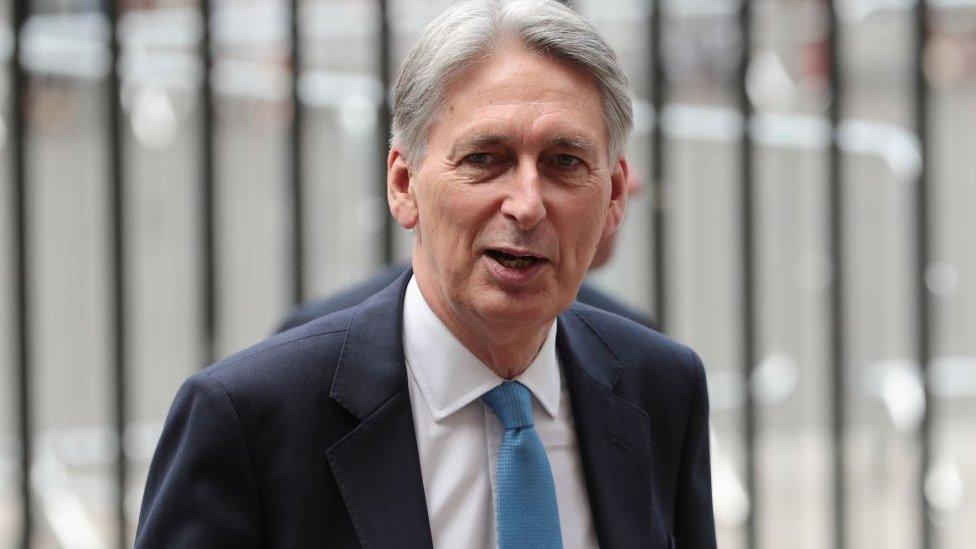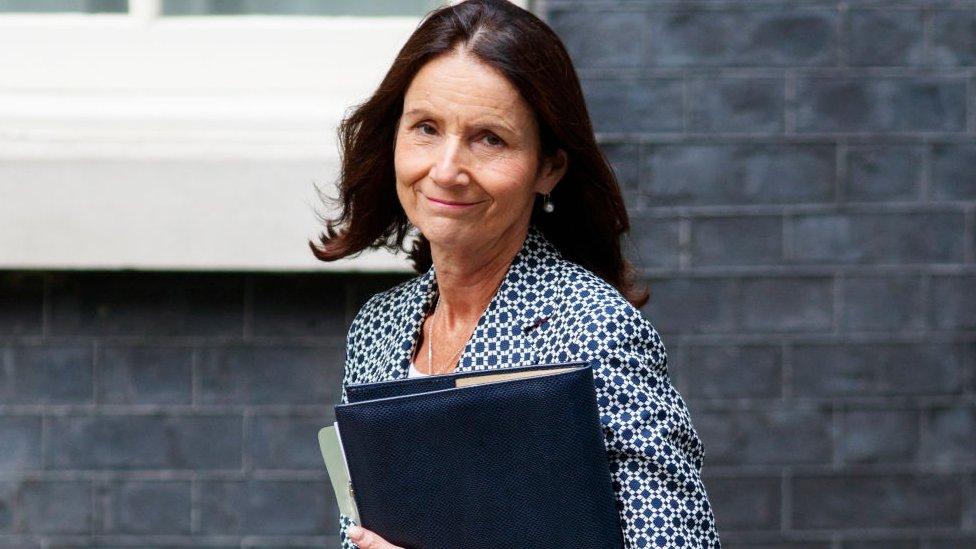On business, Philip Hammond is no Boris Johnson
- Published
- comments

The Chancellor of the Exchequer will do something relatively rare on Monday: take to a public platform to argue about the economy and business.
As I have written in the past, Philip Hammond's approach has been simple as the Brexit arguments swirl with ever greater degrees of ill-temper: make like a submarine.
Quietly, often with the support of the Business Secretary, Greg Clark, the Chancellor has been pushing the government towards the closest relationship possible with the European Union.
Businesses that have the most entwined export relationships with the EU say anything else would be economically calamitous. Mr Hammond agrees.
But he has rejected chances of regular interviews or public platforms to make his case. Why?
To understand that you have to go back to the World Economic Forum in Switzerland last January.
In front of an audience of British business leaders, the Chancellor spoke of wanting "very modest" changes for business once the UK had left the EU. He thought the comments relatively obvious and anodyne.
They blew up into a row that kept the newspapers in headlines for two days as pro-Brexit Conservatives attacked him for arguing for the softest of soft Brexits - and Mr Hammond decided that the mute button would henceforth be his political weapon of choice.
On Monday the Chancellor speaks at the Conservative Party conference in Birmingham.
Given that each appearance is punctuated by long periods under the waves, those close to Mr Hammond know that each "surfacing" is closely watched.
His speeches are not just economic; they are political. And the politics of his speech are all to do with the former foreign secretary and his reported use of an expletive, when asked about business objections to Brexit.

CBI chief Carolyn Fairbairn has rejected claims made about the lobby group by former Brexit minister Steve Baker
Boris Johnson appears to have been particularly riled by the CBI, the business lobbying group.
His sentiments were backed on Sunday by Steve Baker, the former Brexit minister, who said the CBI was "a grave menace to the political stability and economic prospects of the UK".
Mr Baker said the CBI had undue political influence, particularly over relationships with the EU, which brought this tart response from its director-general.
"CBI represents 190k businesses and has had record numbers joining since ref [referendum]," Carolyn Fairbairn tweeted, external. "We speak for a wider range of firms than anyone else. Shooting messengers gets country nowhere."
Mr Hammond wants to make it clear he has far more sympathy with Ms Fairbairn than he does with Mr Baker or Mr Johnson.
He will say business must be at the heart of Conservative party policy. Without their support, Brexit will be all the more difficult, he believes.
The Chancellor knows he has a difficult hand, with an economy that many of the statistics show has suffered since the referendum.
A multi-billion pound promise of more money for the NHS which has brought forth requests for more funding from other government departments that run the police and the armed forces.
They are requests Mr Hammond would like to resist while the nation's debts still stand at £1.8trn, or more than 80% of our national income.
And Brexit, which the Treasury feels has very little economic upside.
He will have to nod to all these issues in his speech.
But it is clear that he wants one message to be heard. If it is not relentlessly pro-businesses, the Conservative party will only add to its problems.
The last thing it needs is a war with companies that deploy billions of pounds of investment in Britain and around the world.
- Published17 September 2018
- Published14 September 2018